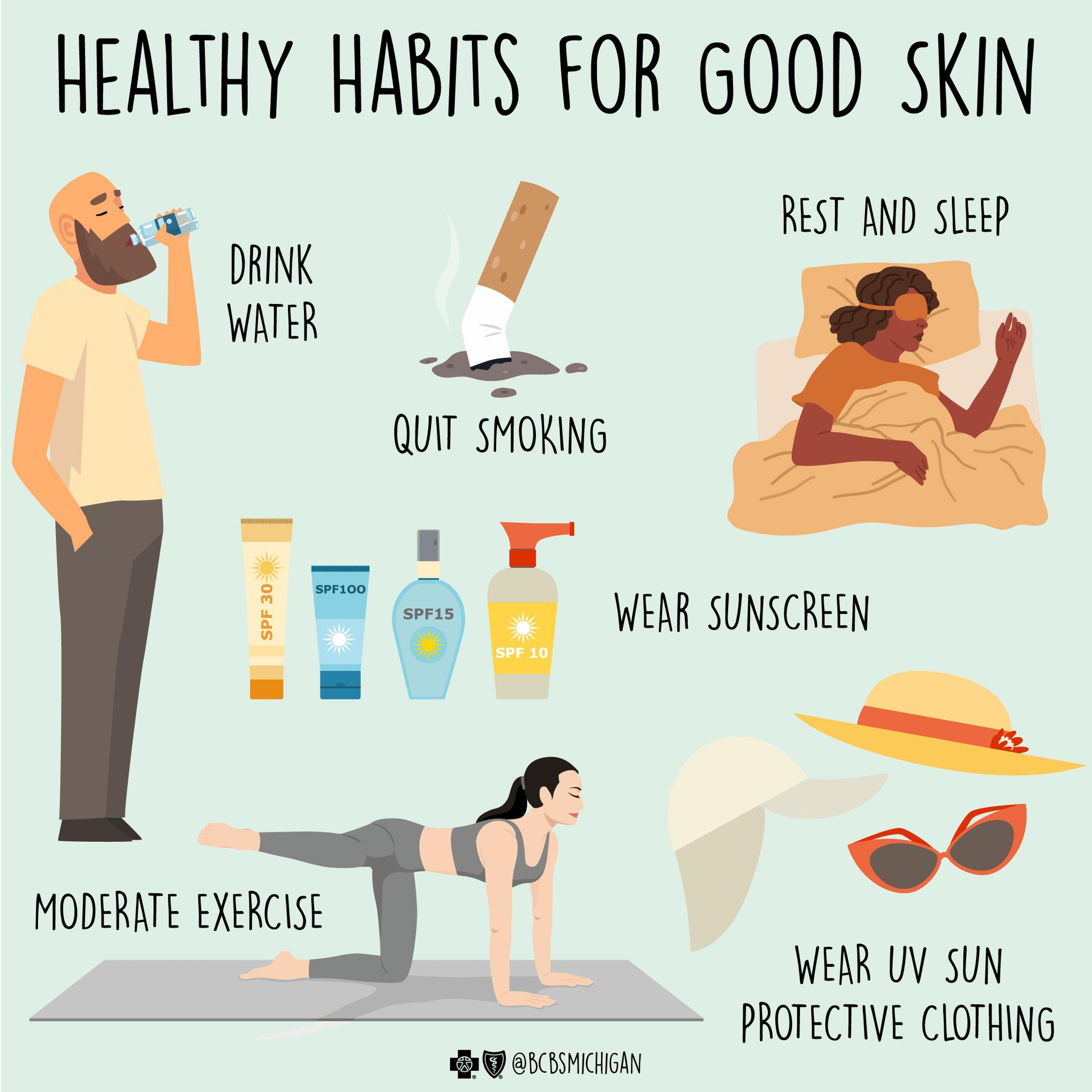Make Your Skin Glow from the Inside Out

Gina Lynem-Walker
| 3 min read

Skin care is an important focus for many people, both young and old. Between social media advice and the thousands of skin care products promising smoother, younger-looking skin, it can be hard to sort the facts from the fluff. Here are some ways to make skin glow from the inside out.
Healthy habits
Some of the biggest positive changes people can make in their skin care routine have nothing to do with what they rub into their face or smooth onto their arms and legs. There are easy lifestyle changes that work together to create healthier-looking skin. Some of the basics include:
- Drinking water: The human body is about 70% water. Staying hydrated not only keeps the body functioning properly, but it also helps the skin look its best and helps reduce the look of fine lines and wrinkles. Experts recommend drinking about 64 ounces of water each day.
- Moderate exercise: A little moderate exercise every day is just what the healthy skin doctor ordered. Exercise gets more oxygen circulating to the skin and it makes people sweat a little, which releases toxins.
- Quit smoking: Puffing on cigarettes and vapes not only deepens lines around the mouth and eyes, but the chemicals being inhaled are damaging to healthy skin. Nicotine reduces the amount of oxygen and nutrients that are able to reach skin cells, which contributes to premature aging and wrinkles.
- Rest and sleep: A restless night of tossing and turning often shows on a person’s face. Getting the recommended seven to nine hours of sleep each night is a big boost for healthy skin. While the body is sleeping, blood flow to the skin increases and internal repairs are made to areas damaged by UV exposure. Adequate sleep equals fewer wrinkles and age spots.
- Wearing sunscreen and hats: Sun damage can make a person’s skin look older than it should. Keep those damaging rays at bay by wearing sunscreen and hats for protection. Hats should have a bill that covers the forehead and shades the eyes, or a wide all-around brim for better coverage. As for sunscreens, dermatologists recommend products with an SPF 30 or higher for those who will be outside a lot. Pick a broad-spectrum sunscreen that protects against both UVB and UVA rays – both can lead to skin cancer and premature aging.

Essentials to a skin care routine
Skin care routines do not have to be complicated. A few simple steps done each morning and night will help keep skin glowing. Here are some basic steps:
- Start by washing with a gentle cleanser
- Follow up with a lightweight toner
- End with a lotion, using a light moisturizer for day use, and a thicker moisturizer for overnight
- Use a sunscreen as a top layer during the day
When to see a doctor
Sudden changes in the appearance of skin means it is time to see a dermatologist. This can include:
- Rashes that do not go away
- Moles or pigmentation areas that suddenly appear, are asymmetrical or expanding
- Anything else that causes concern
Yearly checkups with a dermatologist are best, but anytime a skin issue appears, it is good to get it checked by a professional.
Gina Lynem-Walker, M.D., is an associate medical director at Blue Cross Blue Shield of Michigan.
More from AHealthierMichigan:





